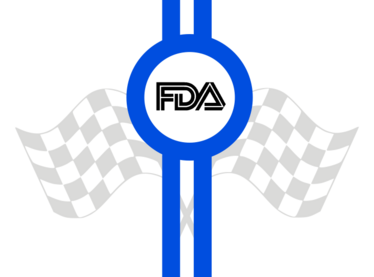Too Fast and Furious?
Expedited regulatory approvals bring medicines to market faster – but are they the right drugs?

Several drugs regulators across the world have developed specialized administrative pathways designed to accelerate the development and review of innovative new drugs for important unmet medical needs. But is speeding up the approval process always a good thing? Some researchers are not entirely convinced of the benefits. A team led by Aaron Kesselheim, an associate professor of medicine at Harvard Medical School in the Division of Pharmacoepidemiology and Pharmacoeconomics at Brigham & Women’s Hospital, has investigated the trends in the growing utilization of the US FDA’s expedited development and approval programs (1).
“The number of new drugs passing through the FDA’s expedited development and review programs has increased significantly since the late 1980s, but our study showed that this increase is actually being driven by non-first-in-class drugs, which are less likely to be innovative,” says Kesselheim. “These results are potentially concerning because it means that programs intended to be reserved for the most important drugs that treat truly unmet medical needs are being applied to drugs that don’t meet these criteria, potentially wasting regulatory resources and exposing patients to increased risk.”
Many drugs that benefit from the expedited programs do provide notable clinical advances — but with faster development and review come safety and effectiveness concerns, since such programs usually involve less rigorous clinical testing. With speed comes the risk that a drug’s predicted effectiveness or safety profile will be different to what is expected when the therapy is subject to post-approval studies. The reasoning behind fast-track programs is that truly innovative therapies may be worth the slightly increased risk.
“Expedited development and review programs allow drugs to be widely used based on limited data that would otherwise not qualify for drug approval. This is fine in limited circumstances of evolving public health crises — indeed, many of these programs were designed in the context of the early days of the HIV epidemic — but it appears that they’re being applied more broadly in situations in which they may not be deserved,” says Kesselheim.
Lengthy drug development times due to trials being performed to earn regulatory approval represent a sticking point for the pharma industry and patients alike, so it’s no surprise that expedited review pathways and policies are in high demand. As an example, in 2012 US legislators created the ‘Breakthrough Therapy’ designation, which aims to focus FDA resources and attention on the development of potentially game-changing medicines. The designation was originally intended to apply to only a handful of drugs, but in the first two years the FDA received 250 applications — 68 of which were granted. At least twelve have since been approved; four of which are treatments for chronic lymphocytic leukemia (CLL). However, despite CLL being a very serious condition, Kesselheim questions whether a single disease condition really can be the target of four “true” breakthroughs in such a short time.
- A.S. Kesselheim et al., “Trends in utilization of FDA expedited drug development and approval programs, 1987-2014: cohort study,” BMJ, 351 (2015).

Making great scientific magazines isn’t just about delivering knowledge and high quality content; it’s also about packaging these in the right words to ensure that someone is truly inspired by a topic. My passion is ensuring that our authors’ expertise is presented as a seamless and enjoyable reading experience, whether in print, in digital or on social media. I’ve spent fourteen years writing and editing features for scientific and manufacturing publications, and in making this content engaging and accessible without sacrificing its scientific integrity. There is nothing better than a magazine with great content that feels great to read.



















